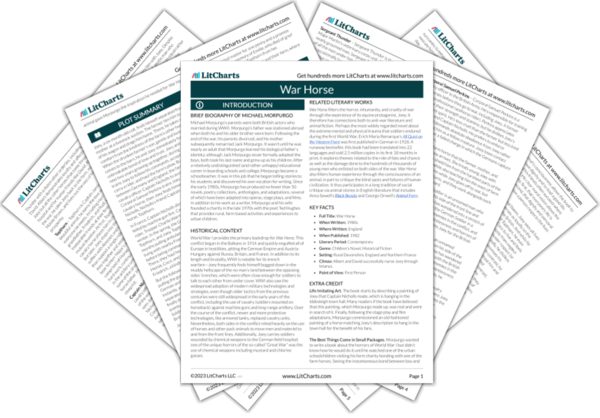The book claims that having hope is a necessary condition for living—it is what helps people (and horses) through their darkest moments. Albert and Joey have survived so long without each other only because they both believe in Albert’s promise to find his friend once more. In other words, they’ve both survived the war thus far because of their hope for a better future. And the reunion vindicates their hope, despite all the odds that were stacked against it. Touchingly, the proof of their identities rests on the reenactment of an ancient ritual of communication, which proves to Albert not only that Joey recognizes him, but also that the horse can understand him, too.
